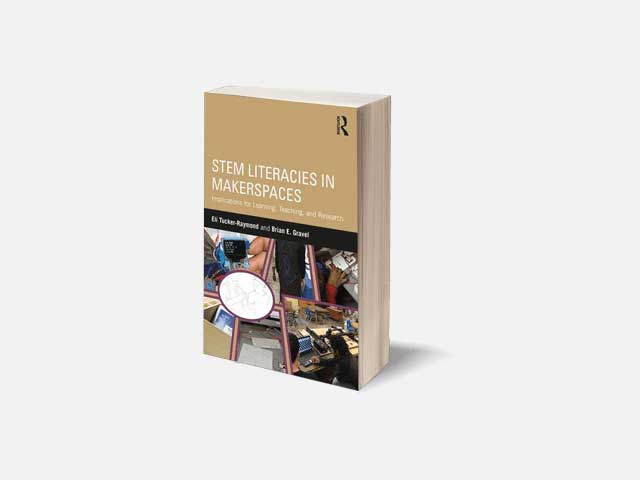In partnership with Brian Gravel from Tufts University
Many communities across the country are developing “makerspaces,” environments that combine physical fabrication equipment, social communities of people working together, and educational activities for learning how to design and create works. Increasingly, making spaces and maker technologies provide extended learning opportunities for school-aged young people. In such environments participants engage in many forms of communication where individuals and groups of people are focused on different projects simultaneously. The research conducted in this project addresses an important need of those engaged in the making movement: evidence leading to a better understanding of how participants in maker spaces engage with science, technology, engineering and mathematics (STEM) as they create and produce physical products of personal and social value.
The project used ethnographic and design research techniques in three cycles of qualitative research. In Cycle One, the researchers investigated two adult-oriented maker spaces in order to generate case studies and develop theories about how more experienced adult makers use the spaces. In Cycle Two, the study expanded into two out-of-school time youth-oriented makerspaces, building two new case studies and initiating design-based research activities. In Cycle Three, the team further applied their developing theories and findings, through rapid iterative design-based research, to an intervention that supported participants’ science literacy and making practices in a high school makerspace.
We have written a book, STEM Literacies in Makerspaces: Implications for Learning, Teaching, and Research. Which provides an original framework for the study of makerspaces in a literacy context. this book bridges the scholarship of literacy studies and STEM and offers a window into the practices that makers learn and interact with. Tucker-Raymond and Gravel define and illustrate five key STEM literacies—identifying, organizing, and integrating information; creating and traversing representations; communicating with others for help and feedback during making; documenting processes; and communicating finished products—and demonstrate how these literacies intersect with making communities. Through careful observation and analysis of multiple case studies, the authors highlight the impact of research and practice to support teaching and making in a variety of environments. Using a nuanced, engaging framework, they examine the necessary skills required to develop and foster makerspaces in formal and informal contexts for all students. Grounded in cutting-edge research, this volume paves the way for future study on supporting making and literacies in STEM.
Click here to visit the STEMLiMS project website.

DRL# 1422532

